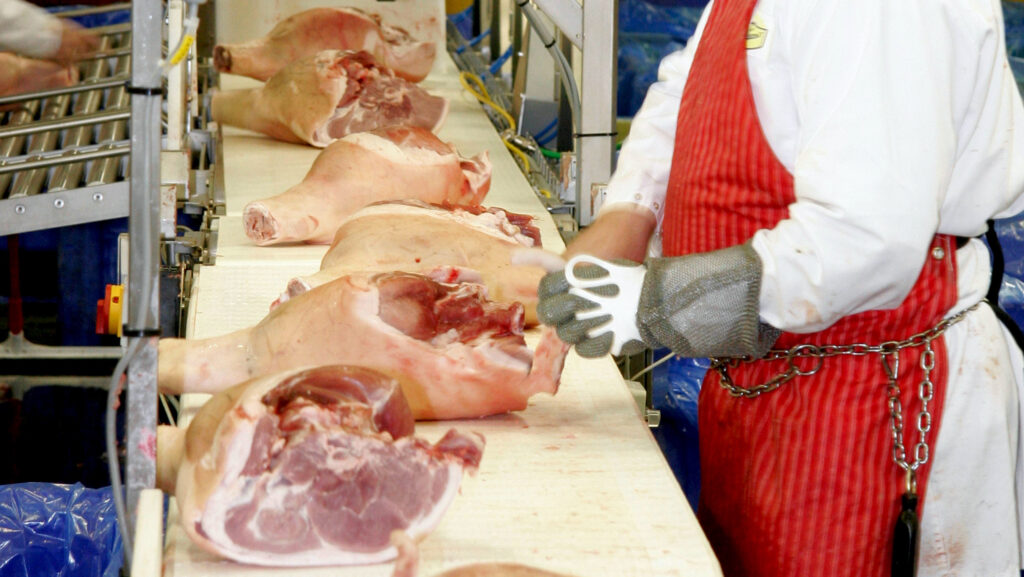Industry welcomes retention of discount for meat inspection charges
 © Tim Scrivener
© Tim Scrivener Farmer groups and rare breeds enthusiasts have welcomed a decision by the Food Standards Agency (FSA) to retain the Small Abattoir Discount on meat inspection charges following a board meeting on Wednesday (18 June).
The discount exists because smaller abattoirs pay charges based on vet hours rather than the number of animals processed, making costs per animal up to nine times higher than larger plants.
See also: FSA’s meat inspection fee hikes set to take effect
With just 47 small abattoirs remaining in England and Wales, the fear was that, without this discount, which covers up to 90% of vet costs, the sector would face further closures.
A recent survey of 850 UK farmers by the Sustainable Food Trust in collaboration with the Soil Association and Rare Breeds Survival Trust (RBST), found one-third had lost their local abattoir in the past five years, while 43% said they would stop selling meat locally if their abattoir closed.
Stability
RBST chief executive Christopher Price said the decision to retain the discount “offers much-needed stability for businesses that play a vital role in local food systems, rare breed conservation, and animal welfare”.
“A thriving network of small, local abattoirs, capable of handling low volumes and a diverse range of breeds, is fundamental to a sustainable and resilient livestock sector,” he said.
“However, the wider challenges of chronic underinvestment and disproportionate regulation remain. We look forward to working closely with Defra to address these systemic issues.”
Soil Association development advisor Adrian Steele agreed that maintenance of the discount was essential to allow small-scale and organic farmers to connect with local customers and to support a diversity of livestock.
“We simply cannot afford to see anymore abattoirs disappearing,” he said. “Small, local abattoirs are crucial to building resilient local supply chains and ensuring higher animal welfare standards.”
The Sustainable Food Trust’s head of policy Megan Perry said that, assuming Defra agrees with this FSA proposal, the next stage would be crucial.
“Industry must be closely consulted about what form the discount should take and how it should be applied going forward,” she said.
The Association of Independent Meat Suppliers estimates that, without the discount, 40% of smaller abattoirs would have to close.
Potential new scheme
Susan Jebb, FSA chair explained that inspections were required by law and play a crucial role in protecting public health and supporting exports.
As part of an ongoing evaluation, the FSA board had recognised the value of continued support for small and some medium-sized abattoirs by offering discounts.
“The board discussed how this support could also be targeted to recognise the importance of other factors, including compliance to standards, animal welfare and innovation, and asked officials to continue to engage with stakeholders to develop proposals for a potential new scheme.
“We will revisit this in a future board meeting, to determine our final advice to ministers, who will ultimately take a decision on the future of any support.”
